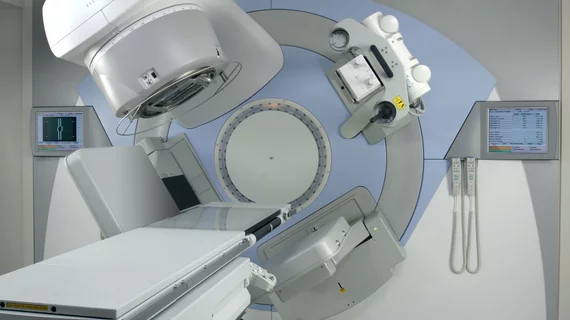Researchers score $2M to examine side effects of radiation therapy in prostate cancer patients
A group of radiation oncologists at the UCLA Health Jonsson Comprehensive Cancer Center have just received a grant worth upwards of nearly $2 million to further their research on mitigating the side effects of radiation therapy.
The National Cancer Institute is providing the $1.8 million grant to a research team led by Amar Kishan, MD, executive vice chair of radiation oncology at the David Geffen School of Medicine at UCLA. Together, Kishan and his colleagues will focus on identifying genetic biomarkers capable of predicting side effects of radiation therapy in patients undergoing treatment for prostate cancer.
Radiation therapy is an integral aspect of prostate cancer treatment. Though it is effective at eliminating cancer, it often leaves patients with lingering side effects, including urinary, bowel and erectile dysfunction issues. Given the effectiveness of prostate cancer treatments, these patients are among those living the most years with a disability related to their cancer care, highlighting a need for solutions that decrease the negative effects of radiation therapy.
“Our goal is to improve the post-treatment quality of life for patients with prostate cancer by predicting and preventing the adverse effects of radiation therapy," Kishan said in a release on the announcement. "This grant will allow us to expand our research and bring us closer to achieving that goal.”
The team’s work has already brought forward one biomarker (PROSTOX) capable of predicting late genitourinary toxicity. Money received from the grant will further validate their findings related to PROSTOX in larger groups of patients and will also go toward examining biological differences that could help guide personalized radiation therapy treatments that minimize side effects in patients who have these biomarkers.
“By understanding the genetic markers that predispose patients to adverse side effects from cancer therapy we can tailor these therapies to minimize harm and maximize efficacy,” co-investigator Joanne Weidhaas, MD, PhD, professor of radiation oncology, vice chair and head of translational research and co-developer of the PROSTOX test, said in the release. “This work has the potential to improve the lives of countless patients.”
Learn more about prostate cancer research in the links below:

